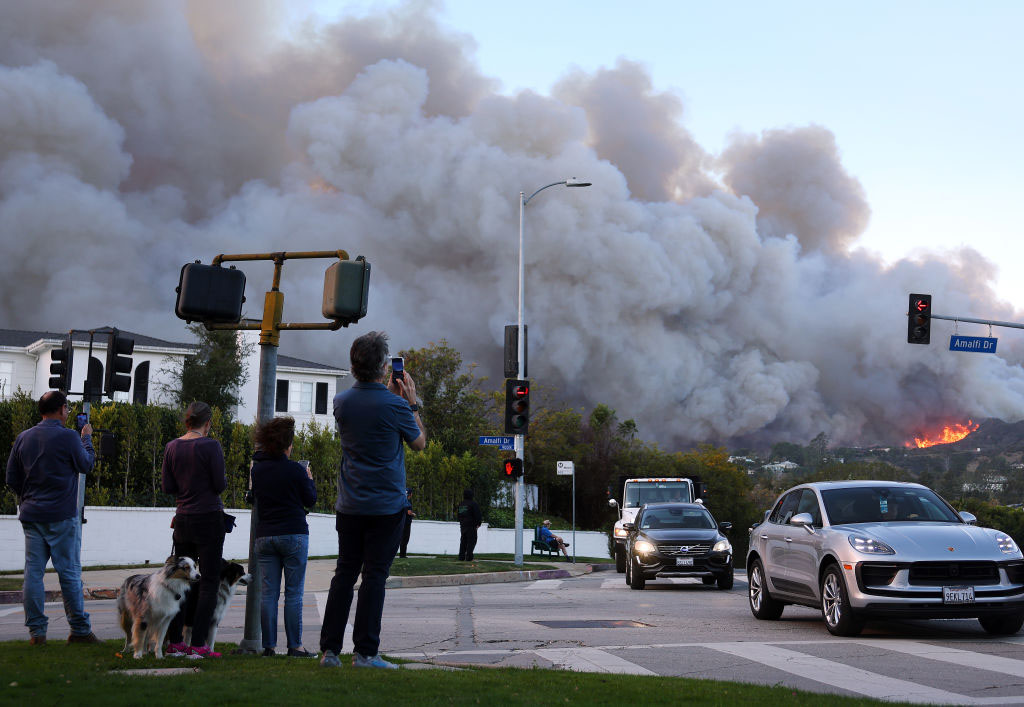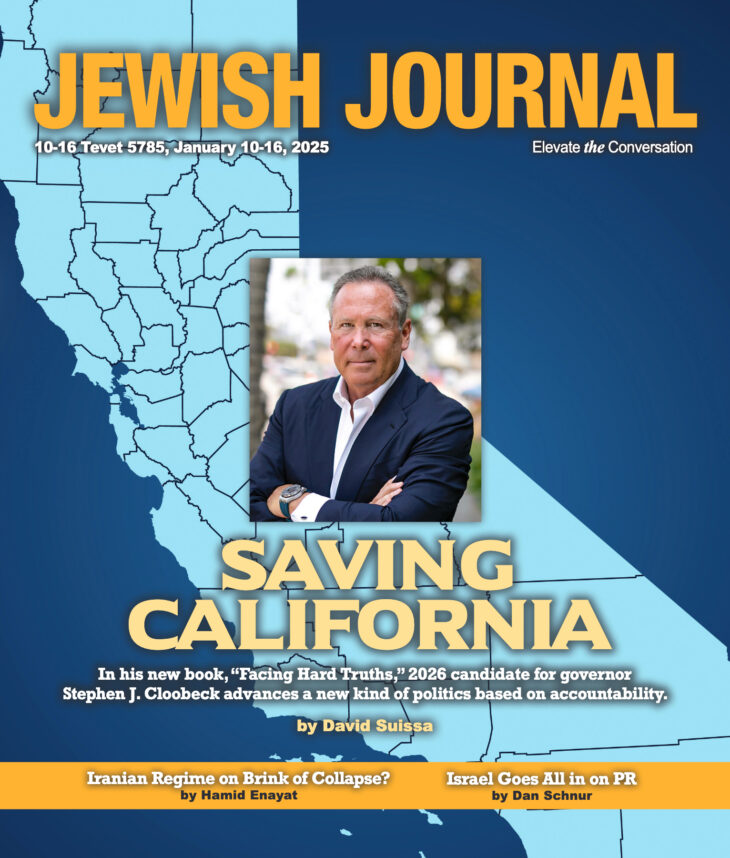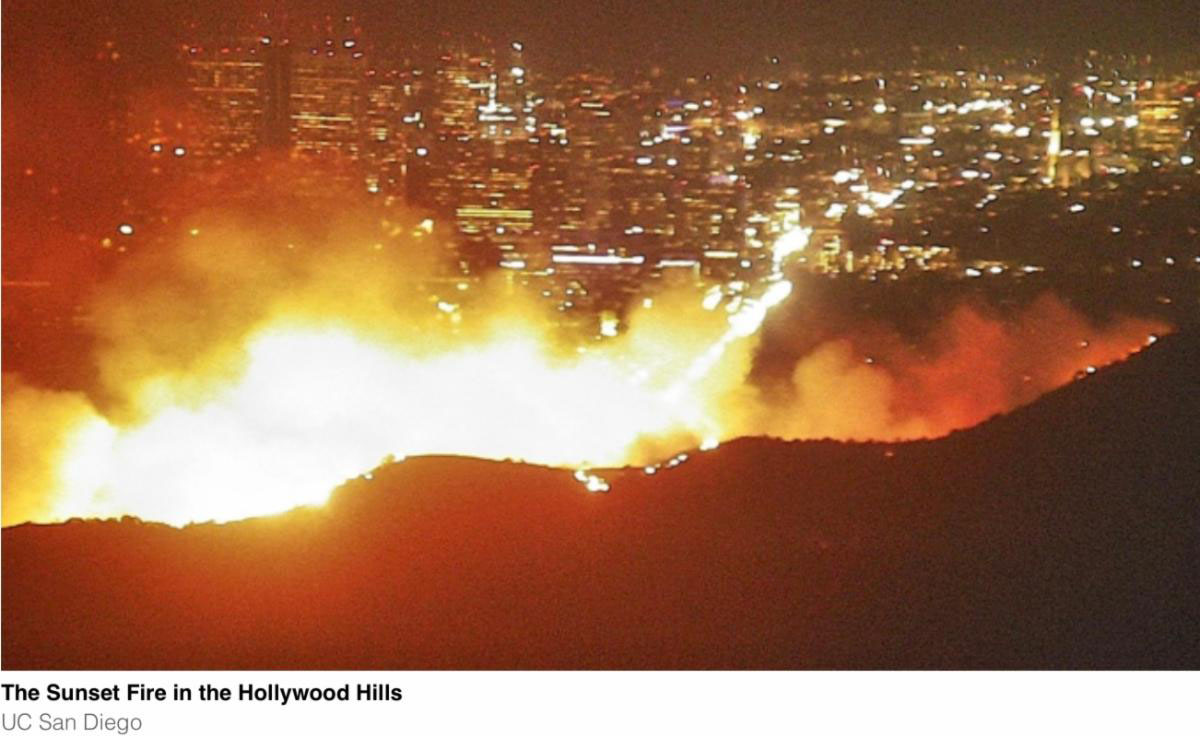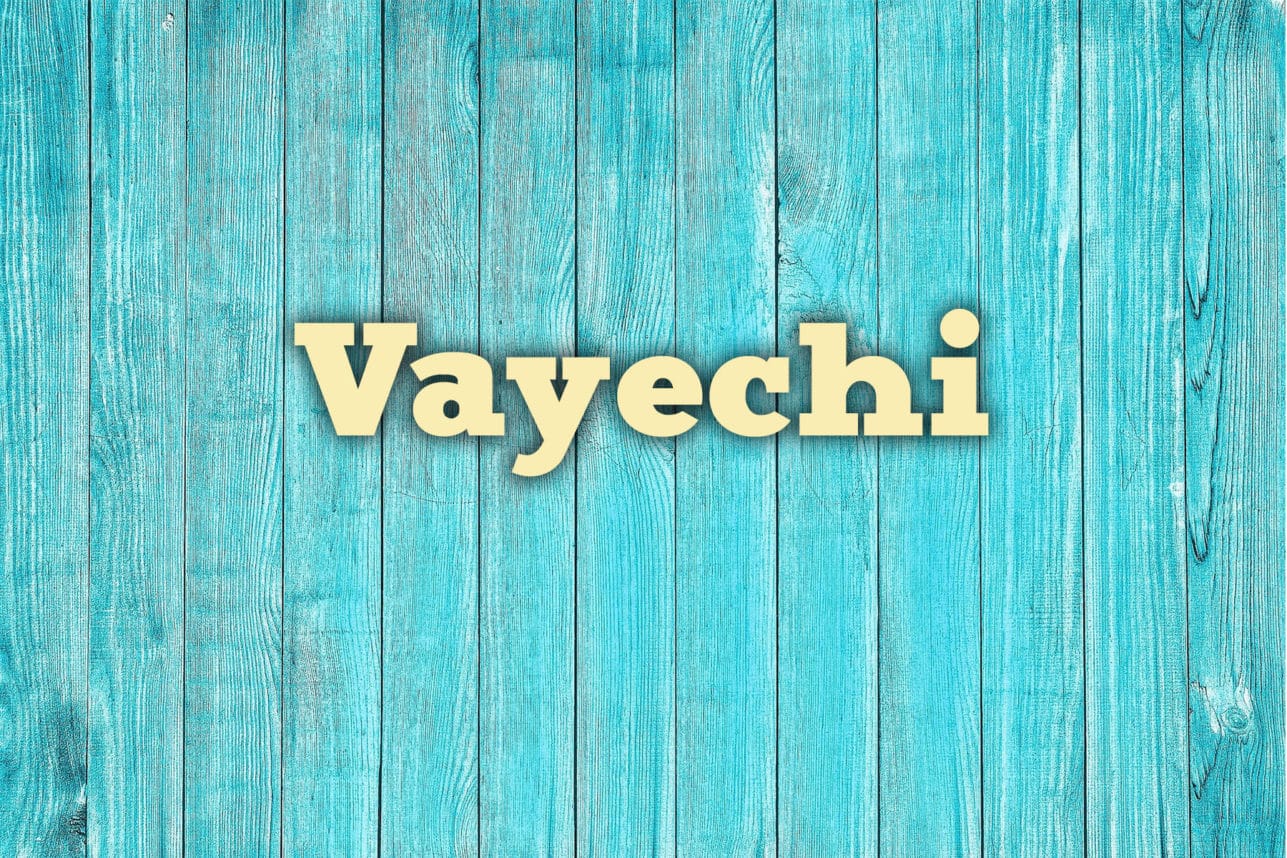Joe Cirincione is a nuclear policy expert who served for nearly a decade on the staff of the House Armed Services Committee, beginning during the Reagan administration. He has since authored several books on the history of nuclear weapons and nuclear security strategy. Today, he is president of the Ploughshares Fund, a grant-making foundation focused on nuclear weapons policy and conflict resolution, with offices in Washington, D.C., and San Francisco. He is a member of Secretary of State John Kerry’s International Security Advisory Board and the Council on Foreign Relations. He talks here about the world's total nuclear arsenal, why coercion is a failed nuclear security strategy and why the U.S. could launch a more effective military strike after the Iran Deal expires.
Danielle Berrin: What should the public know about living in a world in which nuclear weapons are a real and present reality?
Joe Cirincione: These are the most dangerous weapons ever invented. The use of even one nuclear weapon on a modern city would be a catastrophe unprecedented. The use of 10 weapons is unthinkable, and 100 could spell the end of the life of a country and jeopardize the continuation of human civilization.
DB: So, what would happen if Iran dropped a bomb on a tiny country like Israel?
JC: Even a small nuclear weapon could destroy Tel Aviv. Two or three nuclear weapons could devastate large parts of the country.
DB: In a recent op-ed for the Los Angeles Times, you argued in favor of the Iran deal, calling any notion of a better deal “nonsense.” Why, then, does this deal also inspire such vociferous opposition?
JC: In most other parts of world, this is not a controversial agreement. International opinion is overwhelmingly in favor of this deal; nuclear policy experts are overwhelmingly in favor of this deal. The reason it is so controversial in the United States is because the political leader of Israel has said that the deal represents a mortal threat to the security of Israel. Plus, the opportunity the Republican Party has seen to deny a Democratic president a foreign-policy victory. Put those two things together, and it presents a formidable political force against what should otherwise be a noncontroversial agreement.
DB: If the deal is as good as you say it is, why do you think Prime Minister Benjamin Netanyahu is staking so much political capital on opposing it? Is he crazy?
JC: He’s wrong. Every single argument that he presents has been thoroughly answered and rebutted by the best and brightest national security and military experts in United States government. I take him at his word that he sees Iran as a genuine threat to Israel. [But] this deal makes Israel safer: The nuclear program of Iran is going to be effectively frozen for a generation — that is a very long time in international affairs. At the end of that time, should Iran try to get a weapon, we will know with great precision where Iran’s critical nodes are located; we will have improved intelligence on their entire nuclear supply chain, and if we did have to go on a military strike, we’d be much more effective at conducting a strike after this deal than we are right now.
DB: As someone who has studied nuclear proliferation throughout his career, doesn’t history suggest that those intent on acquiring a bomb usually wind up with one?
JC: The history shows that you cannot stop a country from getting a nuclear weapon if that country is intent on getting one. The only way you stop them is if you convince them not to get it. In the last 30 years, more countries have given up nuclear weapons and nuclear programs than have tried to get them, and some of these were very tough cases: Ukraine, Belarus, Kazakhstan, South Africa, Libya, Iraq. This [deal] is a face-saving way [for Iran] to back off from their program. Is there a risk that after 15 years they will then reinstall centrifuges and re-engage their program? Yes.
DB: The United States is the only country in the history of the world that has actually used a nuclear weapon against another country. What makes us moral authorities on nuclear proliferation?
JC: Moral authority is not our strong suit in this regard. We have over 7,000 nuclear weapons in our arsenal; Russia has a similar number. Together, we have 95 percent of all the nuclear weapons in the world, way beyond what our national security needs. We went a little nuclear nuts in the 20th century, and we’re now recovering from those years. During the Ronald Reagan administration, there were 70,000 nuclear weapons in the world, and now there are under 16,000. We’ve made tremendous progress.
DB: In other words, no one should be trusted with a nuclear weapon.
JC: You’ve got to be a real optimist to think that you can keep 16,000 nuclear weapons in fallible human hands and not think something is gonna go wrong.
DB: You’ve dismissed Israel’s fear of an Iranian bomb, though, as stemming from the politics of its prime minister. Do you also dismiss Iran’s threats as empty political remarks?
JC: Quite the opposite. Because they have leaders who have made these kinds of threats, I want a deal that stops them from getting that nuclear capability. I would have loved to get a deal that completely eliminated their nuclear infrastructure; I was in favor of that 10 years ago, when their infrastructure was very small.
DB: Why did we miss that opportunity?
JC: In 2003 [after the United States’ invasion of Iraq], Iran offered to negotiate with the Bush administration on their nuclear program and on a package of other issues, including their support for Hamas and Hezbollah, their relationship to the State of Israel and their relationship to their Sunni-Arab neighbors. But the United States wasn’t interested. The policy of the Bush administration was, as Vice President Dick Cheney said, “We don’t negotiate with evil, we defeat it.” And the view was that we could move from Iraq to toppling other objectionable governments in the region, including those of Syria and Iran. Then everything started to collapse, and that moment passed. In 2005, Iran offered again to renew negotiations, and again the U.S. wasn’t interested. So Iran went ahead with its nuclear program. As we piled on sanctions, they piled on centrifuges: They went from 164 centrifuges in 2003, to 20,000 by 2013.
DB: Does it worry you at all that even if Iran is prevented from proceeding with its nuclear program, the collapse of sanctions will enable it to increase its conventional weapons stockpile and potentially trigger a regional arms race?
JC: This deal keeps the conventional arms embargo on Iran in effect for five more years. Five years from now, will the embargo be lifted? Yes. This deal does not solve all our problems with Iran. It doesn’t address their support for Hamas and Hezbollah; it doesn’t address their human rights record; it doesn’t get American prisoners out of Iran. It only does one thing, but it does it very well: It stops Iran from getting a nuclear bomb.
DB: Let’s say the deal doesn’t go through, and international sanctions begin to collapse. Israeli officials have said that the U.S.’ “biting sanctions” are the only ones that matter anyway, because the U.S. controls the international banking system. Could the U.S. sustain effective sanctions alone?
JC: That is a fantasy. The idea that the U.S. can impose sanctions on the rest of the world after we walk away from a deal that everyone else thinks solves the problem is the height of hubris. If the U.S. tried to sanction Chinese banks for trading with Iran, I think you would start to see a determined Chinese effort to move away from the dollar as central global currency. A view would take hold in the world that the U.S. could not be trusted anymore, and that you could not rely on the U.S. to provide stability and consistency in international relations.
DB: How can we measure this deal’s success?
JC: You’re not going to change this regime. The question is, does it open up? Does this deal lead to a more cooperative posture by Iran on some of the other issues that we’re dealing with? Do they start cooperating to end the war in Syria? To stabilize Iraq? To fight ISIS? If you see some movement in those directions, I think this deal will start to look very good, including to Jewish Americans.
DB: In your heart, is this deal better for Israel or better for the U.S.?
JC: I’m going to Israel tomorrow. I’ve been to Israel 10 times, including on my honeymoon back in 1978. I have family in Israel. I would never do anything that I thought jeopardized their lives or their futures. I have a niece and a nephew who fought in the [Israel Defense Forces]; I have a goddaughter who was just a sniper on the Israel-Egypt border.
DB: Who is Jewish in your family?
JC: My wife and my kids, and now my grandkids. I’m surrounded. Last week, my son broke the glass under the chuppah and got married.
DB: And you’re Italian. What does a holiday table look like?
JC: It is not unheard of to have lasagna and kugel at the same meal.
Correction: An earlier version of this article misstated a quote attributed to former Vice President Dick Cheney. He did not say “We don’t negotiate with people we’ve defeated.” He said, “We don't negotiate with evil, we defeat it.”






















 More news and opinions than at a Shabbat dinner, right in your inbox.
More news and opinions than at a Shabbat dinner, right in your inbox.